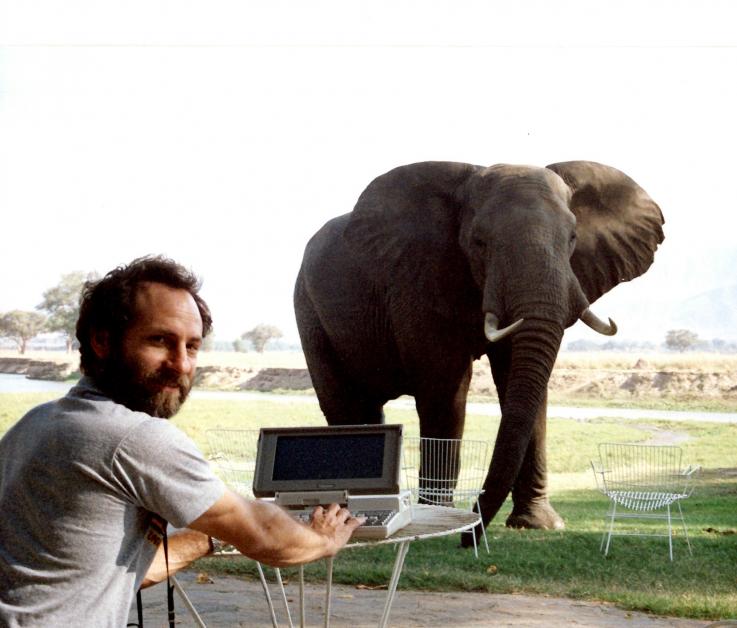
Dr. Jay Kravitz was passionate about pitching in. His understated but unrelenting commitment to caring for others fueled a prolific five-decade career in medicine and public health that led Dr. Kravitz around the world – to Ethiopia in famine, to the Thai-Cambodia border during the Khmer Rouge campaign, to Mexico City after an earthquake, and to Lesotho during the AIDS epidemic.
It also landed him at the University of Washington in 1987, where he enrolled in the first cohort of what was then called the International Health Master of Public Health (MPH) Program and is now the Department of Global Health MPH Program.
Steve Gloyd, a professor of global health and the founding director of the MPH programs, says he was immediately impressed by Kravitz’s unique combination of expertise and modesty.
“Jay was a really unusual guy because he had a huge amount of experience and at the same time came in with a level of humility that is rarely matched by somebody with his experience and wisdom,” said Gloyd. “There are very few people who just went out and did work on almost no support. He was an inspiration to pretty much everybody in the program, including me.”
After graduating with an MPH in International Health Services in 1989, Kravitz, who had earned a medical degree from Tulane University in 1972 and was an ER doctor for 14 years at Kaiser Permanente in Portland, Oregon, grew his medical practice into a career in both international and domestic public health.
Throughout the 1990s, Kravitz worked as an epidemiologist in South Africa, surveying the potential human health effects of a proposed dam in both Lesotho and Eswatini (then Swaziland). From 1996-2006, he served as the Public Health Officer for Washington County, Oregon, dedicating special attention to the health of refugee and immigrant communities. And for over 20 years, he was a faculty member at Oregon Health & Science University (OHSU), where he co-founded the Professionals’ Training in Global Health Program, directed the Concentration in Global Health Studies Program, and earned two awards for excellence in teaching.
Kravitz was passionate about the intersection of health and the environment. He led a rural lifestyle, raising goats, riding horses, and building log homes for himself and friends. Those close to him say he exuded happiness, friendship, positivity, and joy of life.
Following his retirement from OHSU in 2016, he focused his energy on writing policy papers and publishing opinion pieces, including contributing a monthly blog to the Planetary Health Weekly newsletter.
“He was somebody who always questioned the conventional wisdom of development and he did it in such a way where he did he didn't blame folks. He never seemed to have a mean bone in his body,” said Gloyd.
In fact, Michael Martin, a professor emeritus of the University of Washington School of Dentistry, who formed a lifelong friendship with Kravitz when they were both students in the International Health Program, said some of his favorites memories of his best friend are times when Kravitz challenged him to question his own perspective on public health issues.
“Some years back, Jay was worried about tuberculosis in Multnomah County [Oregon]. I said, ‘Come on, Jay, it can’t be that big a deal.’ And I'm a PhD epidemiologist, by the way,” recalled Martin. “He said, ‘Oh Michael, you just don’t get it.’ Then he explained to me why I just didn't get it. I was so humbled by that.”
Kravitz, whose dedication to doing the right thing inspired and moved those who knew him, died on April 10, 2021 in his home in Portland, Oregon. He was 75.